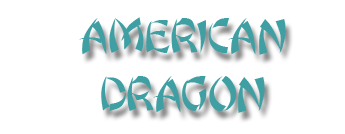INDIVIDUAL HERBS
| Pharmaceutical Latin: | Fructus Mume |
| Common English: | Mume Fruit Black Plum Smoked Plum |
| Taste | Temperature | Entering Meridians | Dosage |
Sour Astringent |
Warm (Neutral) |
Liver Large Intestine Lung Spleen |
3-30g Tincture: 2-4ml |
| Actions | Indications/Syndromes |
Astringes leakage of Lung Qi, stops leakage of sweat and stops coughs |
Chronic Lung Deficiency coughs, dysphagia, regurgitation |
Generates fluids and alleviates thirst |
Thirst due to Heat from Deficiency Qi and Yin Deficiency Wasting and thirsting disorder due to Deficiency Heat |
Expels roundworms and alleviates pain |
Roundworm induced vomiting and abdominal pain Occasionally used for abdominal pain and vomiting not associated with parasites |
Astringes the Intestines and stops diarrhea |
Chronic, incessant diarrhea or dysentery and fecal incontinence and hemafecia (can be used alone charred for these purposes) Rectal prolapse |
Stops bleeding |
Bleeding (hemafecia and excessive uterine bleeding) with symptoms of Blood Deficiency (Dryness, thirst and a parched mouth) Can be used alone charred and powdered for bleeding from the vagina, anus or urethra |
Treat corns and warts topically |
Corns and warts |
CONTRAINDICATIONS |
|
INCOMPATIBILITIES |
HERB/DRUG INTERACTIONS |
Sm. Armeniacae |
Per. Papaveris |
|
| Chronic coughing due to Lung Deficiency. |
Chronic coughing and diarrhea. |
Chronic non-productive coughing. Floating dispersal of Lung Qi chronic coughing, wheezing and exhaustion. |
Tub. Ophiopogonis |
Rx. Rehmanniae |
Per, Zanthoxyli
|
Thirst and irritability due to injured fluids, as in Heat disorders or wasting and thirsting disorder. |
Diabetes. |
Roundworms causing abdominal pain, irritability and vomiting after eating. |
Sm. Arecae |
Rx. Ginseng |
Rz. Coptidis |
Abdominal pain due to roundworms in either the intestines or the bile duct. |
Chronic, incessant diarrhea due to Deficiency Cold from Middle Jiao Deficiency or Spleen and Kidney Yang Deficiency. |
Damp-Heat dysenteric disorders. Thirst, coughing, Dryness and irritability associated with internal Heat patterns - often the result of injured Fluids in chronic dysenteric disorders. |
Fr. Chaenomelis
|
||
Bleeding from any of the lower orifices. |
Indigestion and focal distention of the epigastrium and abdomen resulting from Food Stagnation. |
Vomiting, diarrhea, and muscular spasm associated with Summer Heat disease. |
Rz. Coptidis |
||
| Bloody stools and excessive uterine bleeding, especially with accompanying thirst and symptoms of Blood Deficiency. |
Irritable Heat and fullness in the chest due to Yin Deficiency Fire attacking the Heart. Internal Heat with thirst, Dryness, coughing and irritability. Seasonal epidemic dysenteric disorders with inability to eat. Dysentery with burning sensations due to Damp-Heat. |
Chronic coughing. |
Fr. Chebulae |
Rx. Astragali |
Rx. Quinquefolii |
Chronic diarrhea or dysentery. |
Rectal prolapse. |
Thirst in diabetes, diabetes insipidus and hyperthyroidism. |
Hb. Asari |
|
|
Roundworms and hookworms. |
|
|
- For warts and corns, soften in hot water, remove the growth and then apply a plaster to the area with gauze. Change every 24 hours.
- It is said to heal melanotic nervus and rotten flesh.
- Also used topically for psoriasis.
- It is used with sugar as a drink during the summer, to generate fluids.
- Commonly used in Japan - known as umeboshi. It is regarded as one of the best health tonics - protects against numerous diseases. - Sold in the West as a food in Oriental and health food stores.
- Used externally, it opens the Orifices and opens up closure as in closed type Wind-Stroke with tightly clenched jaws by rubbing the flesh of the fruit on the gum.
- It eliminates dead, noxious flesh such as that surrounding toxic sores (topically).
- It is used, pounded and mixed with jellyfish for topical application to pyogenic infection of the finger, especially with severe pain.
- It has anti-cancer properties and inhibits ascites carcinoma.
- For External Invasion and diseases related to insect bites, parch 90g of this herb into a powder and mix with honey to make small pills. Take 20-30 pills with a decoction of Per. Granati Shi Liu Pi before meals.
- To treat abdominal distention, and pain for those who are out of breath and dying, decoct 27 pieces of this herb in 200ml water and take orally.
- Decoct this herb with 100g of Hb. Scutellariae Barbatae Ban Zhi Lian and take after meals.
- Dry-fried Mume Chao Wu Mei has greater warming and astringing properties and is used for chronic diarrhea due to Spleen Deficiency.
- Vinegar-fried Mume Cu Chao Wu Me has greater Lung astringing and parasite expelling properties.
- Charred Mume Wu Mei Tan enhances its ability to astringe Blood and stop bleeding internally for hemafecia during diarrhea or dysenteric disorders and externally for bleeding sores.
- Flos Mume Bai Hua Mei is Cold, and sour eases the mind to regulate the Stomach, to resolve phlegm, and counteract toxicity, for depression with fidgeting; epigastric pain, due to stagnation of the Qi of the Liver and Stomach, globus hystericus, scrofula and ulcers.
- Wild Mume Yen Mei balances Yin and Yang, Stimulates Qi, Resolves Stagnation and enhances the immune system.
- Both Wu Mei and Fr. Chaenomelis Mu Gua are sour, astringent and warm. Wu Me enters the Lungs to astringe, enters the Intestines to bind up, enters the sinews and bones to soften and drives parasites into hiding. It enters and eliminates dead muscles, noxious flesh, and toxic moles and draws out spines which have stuck in the flesh. Mu Gua dredges and drains Damp-Heat from the Spleen, Stomach, sinews and bones and astringes depleted primal Qi of the Spleen and Lungs.
- Both Wu Mei and Fr. Chebulae He Zi are sour astringent and restrain the Lung Qi to stop chronic cough due to Lung Qi Deficiency and both enter the Large Intestine to treat long term diarrhea and dysenteric disorders. Wu Mei generates fluids, strengthens the Stomach and expels roundworms, none of which He Zi does. On the other hand, He Zi has is a stronger astringent so that it directs Qi downward to benefit the throat and unbind the voice, which Wu Mei cannot do.
- Both Wu Mei and Fr. Schisandrae Wu Wei Zi astringe the Lungs, generate fluids and bind up the Intestines. Wu Mei more strongly generates fluids and alleviates thirst. It also harmonizes the Stomach and eliminates roundworms. It is important in treating irregular uterine bleeding or Hematuria. Wu Wei Zi more powerfully astringes Lung Qi to stop coughs while at the same time, strengthens Lung Qi, grasps Kidney Qi, astringes Essence and sweat and calms the Spirit.
- Both Wu Mei Per. Papaveris Ying Su Ke and are astringents. Wu Mei is a strong astringent. It enters the Lungs to stop cough, enters the Intestines to stop diarrhea, enters the Qi level to restrain Deficiency Fire and enters the Blood to contain Yin and Blood to stop bleeding. Ying Su Ke more strongly enters the Lungs and Intestines to restrain and inhibit. It more readily affects the upper burner and most importantly secures and stabilizes the Kidney Qi and strongly relieves pain.

